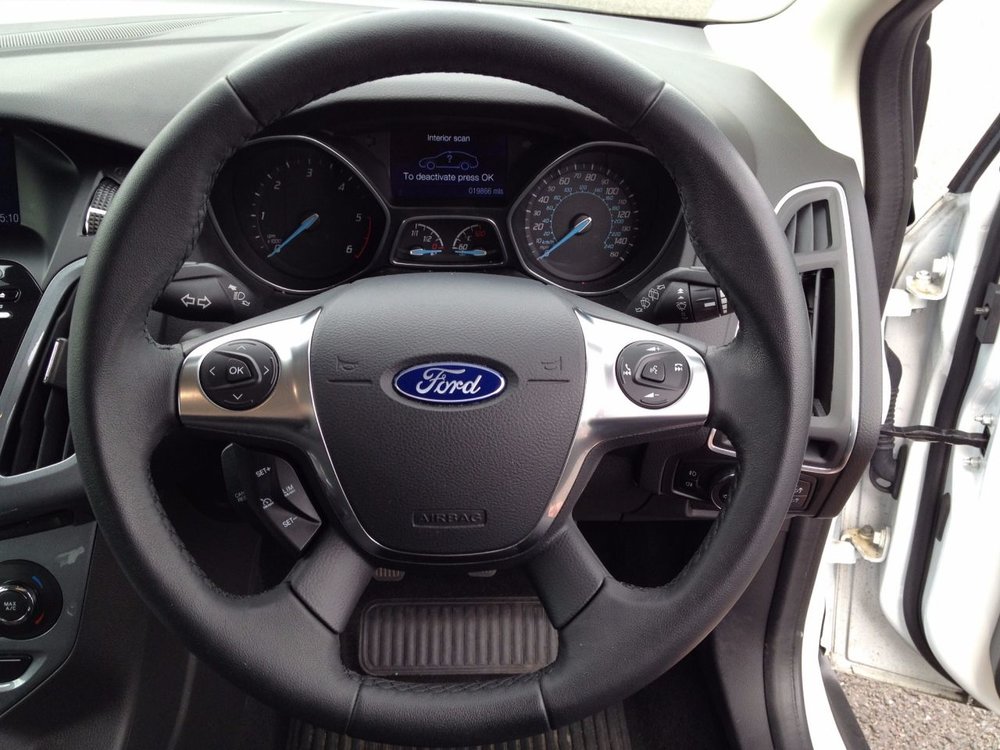It’s not been a great year for Ford in the international scene, and things seem to be going from bad to worse for the giant car manufacturer.
As a matter of fact, car sales for Ford in one of the company’s largest markets, China, experienced a massive drop by 43 percent in September. This is in comparison to the sales of the car megalith in the same month a year earlier.
Not only does this show that sales are dipping for the company internationally, but that things are not as fine and dandy as was once thought despite their strong presence in the region.

Ford has recorded a massive drop in the Chinese market, declining by 43%
Biting the Dust
The United States second largest car manufacturer has been severely affected by the current trade war between the United States and China, regardless of the fact that Ford’s cars are sold via partnership deals with local companies in China.
On the stock market, things are not so rosy for Ford as well. In fact, Ford shares plummeted by a whopping 30 percent since the start of 2018. If that’s not enough, during the trade on Friday, Ford stocks hit a record low on their 52nd week at $8.57.
According to a statement released by the president of Ford Asia Pacific, Mr. Peter Fleet, he said that the company is focused intensely on turning their sales around in China.
In fact, the company has already created a turnaround plan aimed at making aggressive product introductions that will address all the needs of Chinese consumers. This includes the launch and introduction of the new and highly-revered Ford Focus.
Additionally, Fleet believes that the new products that have been designed and engineered with the needs and demands of Chinese individuals at heart, will provide the company with the ability to regain its momentum in China, which happens to be the world’s most massive car consumer market.

Ford is currently devising ways to create a turnaround to respond to this decline
A Recent Dip in Purchases for the World’s Largest Car Market
That being said, it appears that the current mishap of sales in China is not only happening to Ford. The trend is that auto sales in China are down.
According to the president of Zo-Zo Go (a firm that monitors the presence of electric vehicle manufacturers in China), Mr. Michael Dunne, this is the first time that such a downturn has been observed since the late 1990s that saw the occurrence of the Asian financial crisis.
Three Major Reasons for Ford’s Massive Decline of Sales in China
Keeping this in mind, there are three major things that could be causing this decline in purchases.
The first one is believed to be the recent crackdown on particular lending practices in the peer-to-peer sphere that is normally practiced in China. As a matter of fact, this is a kind of financial feature that is commonplace in China where the Chinese finance system provides less wealthy Chinese individuals to take loans at rates that are much more comfortable than what banks regularly offer them.
Secondly, Chinese customers have recently gained more caution with their purchases because of the current financial atmosphere.

That being said, the current trade war between the US and China has greatly contributed to the auto maker’s decline
According to Dunne, when the times are financial great for the Chinese people, the moderate to wealthy seem to be more bold and bullish with their financial decisions. However, when times are uncertain, the Chinese people revert to a conservative nature with their purchases.
He goes on to say that such a mentality can be common among Chinese consumers, and is more pronounced as compared to the lack of consumer confidence that is observed in the United States. Additionally, he believes that it is completely contagious.
Last but certainly not least, the current trade war between the U.S and China has exacerbated the financial tension among the two nations, and this kind of uncertainty is resulting in an economic slowdown for both countries.
In fact, Ford is one of the major companies that is affected by this financial battle. The automaker has been unable to innovate new products to be directed into the market this whole year, resulting in Chinese consumers sourcing elsewhere for their cars.
That being said, the company is looking to introduce new products to the Chinese market in months to come and hopefully bounce back with the number of sales that it has in the market.
